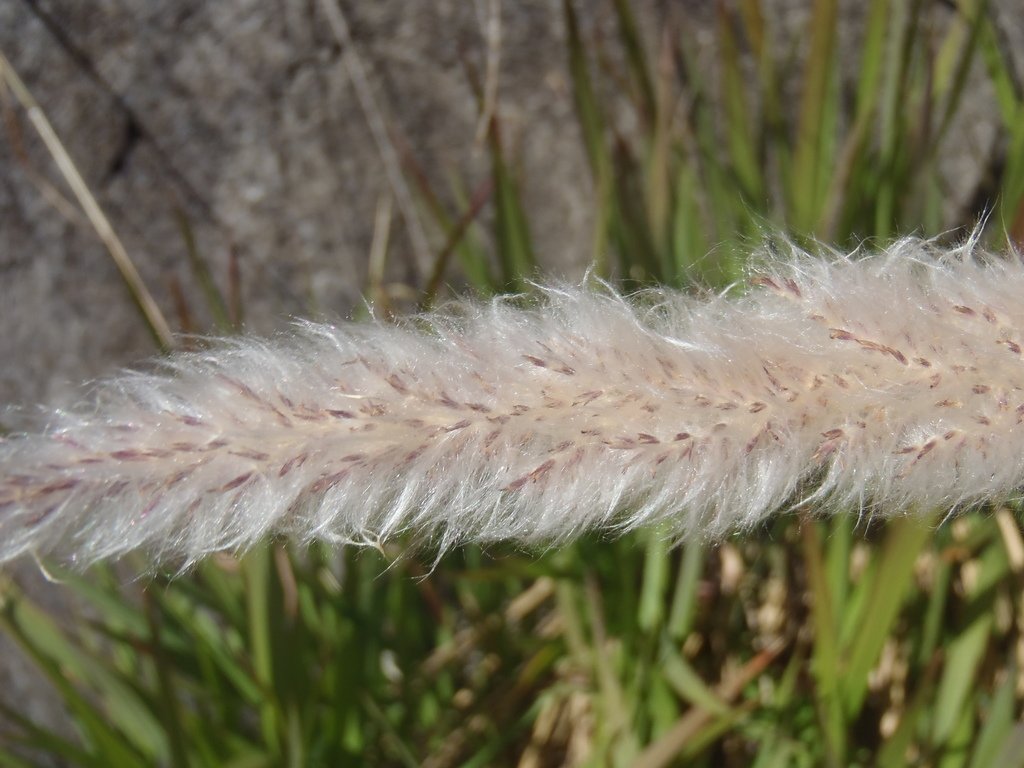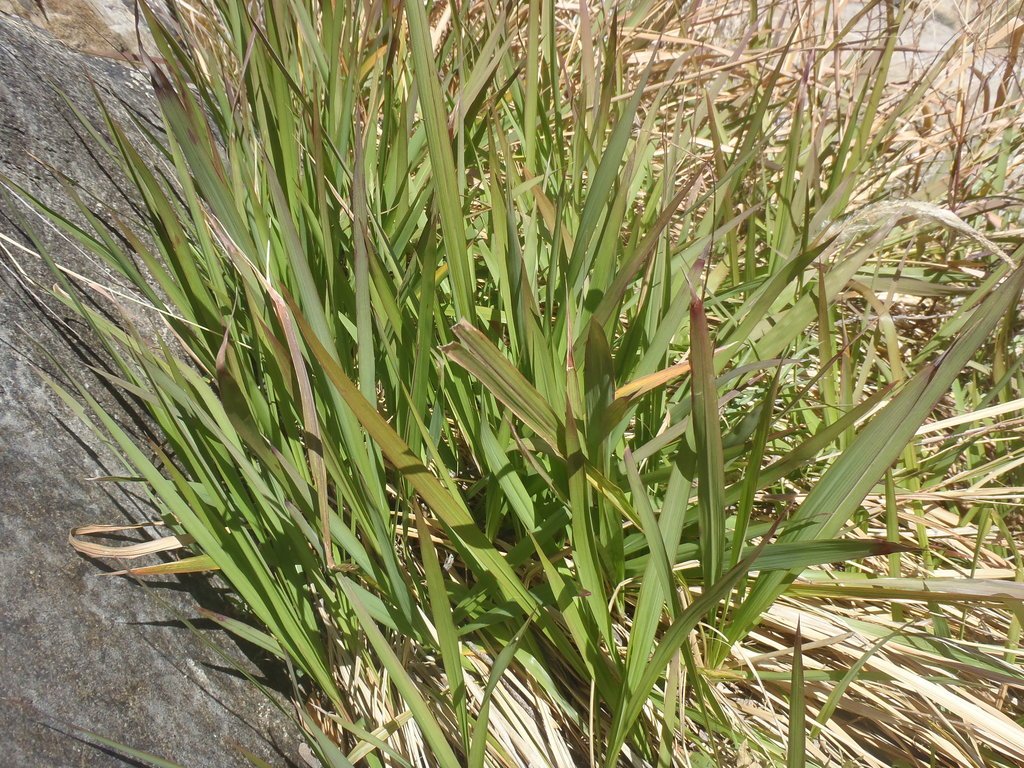California Satintail
Imperata brevifolia
Family: Poaceae
Perennial bunchgrass growing from a hard rhizome, reaching to nearly 5’ tall. White panicles filled thickly with silky white hairs and dotted with dark speckles which are the orange-brown anthers and purplish-brown stigmas of the spikelets appear May through October.
Many populations in the West have been replaced by housing developments or agriculture. It still persists in locations in California and Grand Canyon.
Full to filtered sun, regular water.
Full to filtered sun, best with regular irrigation. Fully cold hardy in our region.
As with most native grasses, this is a larval host for many species of moths and butterflies, but specifically attractive to the Eufala Skipper (Lerodea eufala).
Imperata brevifolia was once listed as a noxious weed by the state of California. The reason for the listing is not clear but most likely a misidentification; it may have stemmed from confusion of this native species with one of the introduced weedy species of Imperata.
Imperata is named after the pharmacist Ferrante Imperato, while brevifolia means with short leaves. There are 11 species of Imperata native to tropical and subtropical regions worldwide.
Found in springs, wet meadows, along streams, flood plains, desert canyons near water sources below 5000 ft.
Photo by Sue Carnahan, SEINET
Imperata brevifolia on iNaturalist

Details of the cottony inflorescence, photo by Dan Beckman, iNaturalist

This species has rather wide foliage for a native grass, indicative of its dependence on moisture. Photo by Dan Beckman, iNaturalist

